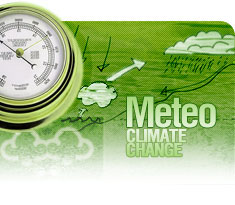https://phys.org/news/2022-05-global-opportunities-carbon-storage-mitigate.html
A new study, "The Global Potential for Increased Storage of Carbon on Land," published today in Proceedings of the National Academy of Sciences (PNAS), provides a series of geospatial maps that improve our understanding of the global gap between current and potential carbon storage on land, and offers a framework for action to realize the full potential of land-based carbon storage as a natural climate solution. The study is timely, coming on the heels of the Intergovernmental Panel on Climate Change (IPCC)'s Working Group III's latest report, which focuses on the urgent need to reduce carbon emissions in order to limit future warming, and highlights the significant mitigation potential of natural and managed ecosystems given the opportunity they offer to remove additional carbon from the atmosphere.
"From forests to soils, terrestrial ecosystems store enormous amounts of carbon globally, and are capable of storing even more," said Dr. Wayne Walker, Carbon Program Director at Woodwell Climate Research Center and study lead author. "But realizing the untapped potential of land to aid in addressing the climate crisis means understanding how much storage space is available, where in the world that space is located, and what actions can be taken in those places to take advantage of the opportunity they offer as rapidly as possible. This study provides the data and conceptual framework for doing that."
Using the new global maps, researchers quantified the unrealized potential carbon storage of both above- and below-ground woody biomass and soil organic carbon and found 287 petagrams of untapped carbon storage, with 78% available in woody biomass and the remaining 22% in soils, across tropical, temperate, and boreal climate zones. These findings reveal the significant potential for expanding land-based carbon capture globally through the restoration, improved management, and maintenance of forests and other woody systems. Improved management of existing forests alone may offer more than 75% of the untapped potential, with the majority (71%) of it concentrated in tropical ecosystems.
"Forest stewardship represents the greatest opportunity for realizing carbon removal and storage in the near term, and the urgency of the climate crisis demands that we prioritize these efforts," said Peter Ellis, director of natural climate solutions science at The Nature Conservancy and study co-author. "Our research shows that after safeguarding lands required for food production and human habitation, improved management of forests and other woody systems-particularly degraded forests across the global tropics-offers tremendous climate mitigation potential."
While study results point to the significant opportunity that land offers as a natural climate solution based on what we know now, this work cannot stop there.
"We anticipate these findings will prove valuable for many countries, since natural climate solutions figure heavily in delivering Paris Agreement commitments in most countries; however, these results must be combined with a range of other information to prioritize and effectively implement natural climate solutions," said Bronson Griscom, senior director of natural climate solutions at Conservation International. "For example, we need to consider spatially explicit predicted climate conditions, costs, and implications for local human well-being, as we work with stakeholders to prioritize and design restoration efforts."
Both the IPCC report and the new study identify land-based, natural climate solutions as important for driving large-scale greenhouse gas emissions reductions and enhanced removals (IPCC WGIII, 2022). These efforts-including maintenance, management, and restoration of terrestrial systems-require globally consistent frameworks in order to accurately address current gaps and inform landscape-level planning and targeted mitigation solutions. This study introduces a critical dataset for achieving these efforts.



 Română
Română English
English


